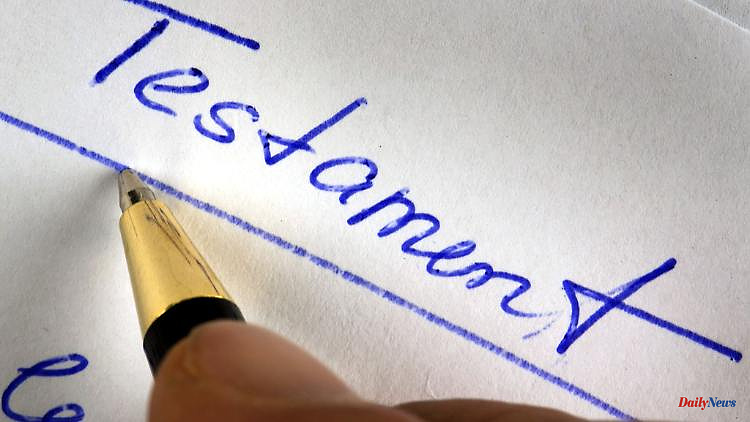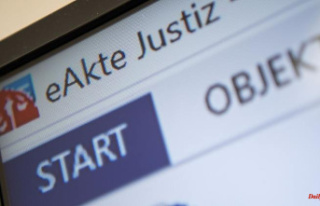If relatives refuse an inheritance or no recipient can be found, the estate falls to the state by law. He has more work than fun - and expects even more stress.
Dresden (dpa / sn) - Garbage-filled apartments, old cars, ruins: The Free State of Saxony makes a good 1000 inheritances every year, last year it was a little less than in the years before. They are seldom lucrative, rather, by law, over-indebted estates or estates fall to the state that are just enough to settle creditor claims. The Free State is trying to "keep the black zero" within the estate processing, as Martin Oberacher, head of the central area management (ZFM) division in the state enterprise, says. "It is important to ensure the best possible economic return with all the specialist knowledge and routine.
Most of the time, however, it is debts on houses and accounts, old cars, ruins or littered apartments and worthless stuff. "This trend continues." The authority expects the number of such fiscal inheritances to increase as a result of the corona pandemic and current inflation.
According to statistics, the probate courts identified the tax authorities as heirs in 1,119 cases in 2021, 38 fewer than in the previous year. The portfolio fell by 381 to 3867 involuntary estates, 1500 fiscal inheritances were completed - a good 500 more than in 2020. Around a fifth of the cases involve real estate, with houses, garages, allotments or even inns often being overindebted. "The costs for maintenance or disposal are usually higher than what can be achieved by selling them," says Oberacher.
It is even more difficult when the Free State inherits real estate abroad such as Italy, Greece or Hungary, because local service providers such as lawyers have to be paid and the proceeds are further reduced. Maintenance obligations on properties as well as personnel and material costs reduce the "profit" - or sometimes eat it up.
After 2007, the country always had to pay extra, but since 2018 revenue has exceeded expenditure. For 2019, the statistics show an increase of a good two million euros to 5.99 million euros. In 2020, the Free State took almost 4.8 million euros from the inheritance, but also spent a good four million on the settlement of the estate. In 2021, too, income exceeded expenditure at almost 5.9 million euros - by almost 1.3 million euros.
By law, the state takes over everything from household effects to buildings, only a fraction of which actually bring money. In the best case, cars, jewelry, televisions and other items are "silvered" via auction houses and estate agents. In the past, the tax officials occasionally came across "treasures", such as a villa preserved in the style of the 1940s, complete with inventory, opulent collection of shellac records, antique books, porcelain and vintage cars.
If relatives refuse an estate or no heir is found, the estate falls to the state by law. If heirs register within 30 years after the death of the testator, the state gets rid of the property and the proceeds.












